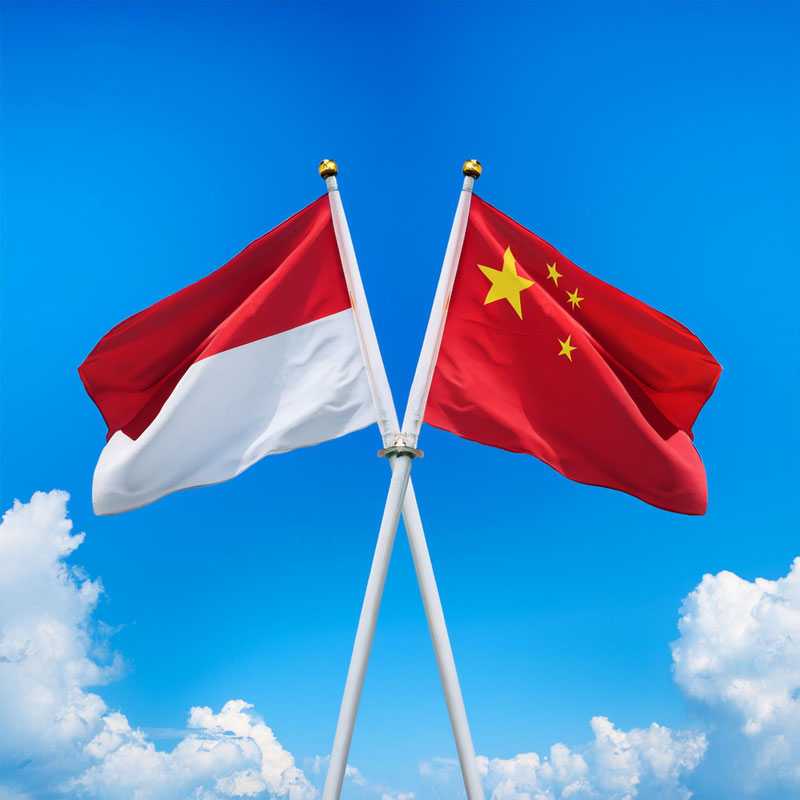
What Lies Ahead for China-Indonesia Relations Under Indonesia’s New President?
October 29, 2024
On October 20, Indonesia swore in former Defense Minister Prabowo Subianto as president. In his campaign, Prabowo promised policy continuity with the popular former President Joko “Jokowi” Widodo, whose administration oversaw vast trade and investments between Indonesia and China. Chinese Vice President Han Zheng’s attendance at the inauguration and Prabowo’s scheduled visit to China in November suggest that despite shifts in national priorities and geopolitical dynamics, China-Indonesia relations will remain positive under the new administration.
China is Indonesia’s largest trading partner and a major source of greenfield and infrastructure investment. In 2023, the total value of Indonesia’s trade with China reached USD 139 billion. Chinese investment in Indonesia totaled USD 7.4 billion, making China the country’s second-largest foreign investor after Singapore.
China’s investments in Indonesia are both substantial and diversified. There is a strong focus on industries such as nickel processing for electric vehicles and infrastructure projects, such as the Jakarta-Bandung high-speed railway, a significant Belt and Road Initiative (BRI) project that underscores China’s influence in the country. This focus on infrastructure and resource projects contrasts with Chinese investment in other Southeast Asian countries like Thailand, which emphasizes digital economy cooperation.
Diplomatic relations between Indonesia and China are complex, shaped by Indonesia’s official stance of non-alignment yet active participation in China’s BRI. While the BRI, along with trade and investment with China more broadly, offers substantial economic benefits to Indonesia, some commentators in the country have expressed concerns about becoming too economically reliant on Beijing.
Jakarta is seen by Beijing as an exemplary partner. First and foremost, China benefits greatly from trade with Indonesia. The country supplies China with metals, mineral products, animal and vegetable biproducts, paper goods and other materials needed by domestic value-added industry chains. At the same time, Indonesia is a significant market for Chinese manufactured products, including industrial machines, finished metals, chemical products and textiles. These exchanges in goods, along with infrastructure and large-scale industrial projects, have also brought business opportunities to a wide range of Chinese companies, both private and state-owned.
On the political side, Indonesia is seen as a ballast for Chinese interests in Southeast Asia. The Indonesian population has a net favorable view of China. Public opinion is also balanced between China and the United States, giving Beijing the opportunity to deepen its relationship with Jakarta without great risk of political and/or popular backlash. Beijing’s success in Indonesia is in part driven by the close alignment between China’s global programs and Indonesia’s needs, providing capital and expertise across national priorities such as infrastructure, the digital economy and green development. China also sees benefits across the Middle East from having a positive relationship with a predominantly Islamic country. Taken all together, Indonesia has emerged as a model partner for China in the Global South.
For Indonesia, China is an important part of its development puzzle. Indonesia has set ambitious long-term national goals through the Golden Indonesia 2045 vision. This strategy, aligned with the country’s centennial in 2045, aims to elevate Indonesia to one of the world’s five largest economies. At the heart of the plan is a commitment to transition from a commodity-based economy to a value-added industry-driven economy.
As the world’s largest nickel producer, Indonesia has strategically upgraded its nickel value chain, prompting China to adapt its approach. Historically, China’s role largely comprised importing raw nickel ore for processing. However, after Indonesia implemented an export ban on raw nickel ore in 2020, China shifted its strategy to invest directly in nickel smelting and processing facilities in Indonesia. These investments generate jobs and drive Indonesia’s industrial growth while providing China with a stable supply of processed nickel, which is crucial to its EV industry.
In this context, Indonesia’s relationship with China may be a catalyst for achieving the goals of Golden Indonesia 2045. China is a key partner in infrastructure development and investment, which supports Indonesia’s ambition to move up the global value chain.
Indonesia has long adopted a non-alignment principle, carefully managing its relationship with China while diversifying its international partnerships. By strengthening ties with other major players such as the United States, Japan and Association of Southeast Asian Nations (ASEAN) neighbors, Indonesia seeks to maintain its diplomatic independence and strategic autonomy.
This delicate balancing act suggests that while Indonesia may take measured steps—such as potentially limiting Chinese investment in strategic sectors like nickel to secure access to U.S. markets—it is unlikely to pursue a confrontational stance toward China. Instead, Indonesia’s approach will likely remain pragmatic, engaging both China and the United States without jeopardizing relations with either.
China and Indonesia are likely to remain deeply connected under the new administration, as the two countries’ priorities, needs and capabilities supplement each other’s development visions. Prabowo’s administration is widely considered a continuation of Jokowi’s, which engaged in frequent high-level exchanges. Prabowo has already had six meetings with Chinese officials in the post-election period, including one with Chinese President Xi Jinping. He has stated that he “fully supports the development of closer Indonesia-China relations and wishes to continue President Joko’s policy of friendship with China.”
Prabowo aims to raise Indonesia’s economic growth rate to 8% during his first term. To do this, he will likely look to build on the foundations of Chinese capital for infrastructure and resource development attracted under the previous administration. These investments have already boosted growth by enhancing Indonesia’s manufacturing capabilities and creating jobs, and Prabowo will aim to sustain the momentum for domestic industry development.
Indonesia can also be expected to maintain its flexible foreign policy, balancing engagement with China, the United States and other partners. Therefore, Chinese businesses need to be sensitive to changes in bilateral dynamics and Indonesia’s economic and political interests.